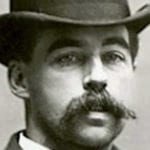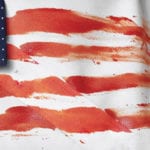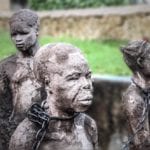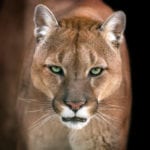 Our World
Our World  Our World
Our World  Crime
Crime 10 Dark Details of the “Bodies in the Barrels” Murders
 Animals
Animals The Animal Kingdom’s 10 Greatest Dance Moves
 Movies and TV
Movies and TV 10 Box Office Bombs That We Should Have Predicted in 2025
 History
History 10 Extreme Laws That Tried to Engineer Society
 History
History 10 “Modern” Problems with Surprising Historical Analogs
 Health
Health 10 Everyday Activities That Secretly Alter Consciousness
 History
History Top 10 Historical Disasters Caused by Someone Calling in Sick
 Animals
Animals 10 New Shark Secrets That Recently Dropped
 Movies and TV
Movies and TV 10 Forgotten Realities of Early Live Television Broadcasts
 Our World
Our World 10 Places with Geological Features That Shouldn’t Exist
 Crime
Crime 10 Dark Details of the “Bodies in the Barrels” Murders
 Animals
Animals The Animal Kingdom’s 10 Greatest Dance Moves
Who's Behind Listverse?

Jamie Frater
Head Editor
Jamie founded Listverse due to an insatiable desire to share fascinating, obscure, and bizarre facts. He has been a guest speaker on numerous national radio and television stations and is a five time published author.
More About Us Movies and TV
Movies and TV 10 Box Office Bombs That We Should Have Predicted in 2025
 History
History 10 Extreme Laws That Tried to Engineer Society
 History
History 10 “Modern” Problems with Surprising Historical Analogs
 Health
Health 10 Everyday Activities That Secretly Alter Consciousness
 History
History Top 10 Historical Disasters Caused by Someone Calling in Sick
 Animals
Animals 10 New Shark Secrets That Recently Dropped
 Movies and TV
Movies and TV 10 Forgotten Realities of Early Live Television Broadcasts
Top 10 American Poems of the 20th Century
I think it is fair to say that American poets have really dominated the poetry scene in the 20th century. Some of the most remarkable and groundbreaking poetry has come from US poets living in or away from home. Below is a sampling of the work of 10 of the greatest American poems from the 20th century.
1. the Wasteland – T S Eliot
Eliot was born an American, moved to the United Kingdom in 1914 (at the age of 25), and became a British subject in 1927 at the age of 39.
April is the cruelest month, breeding
Lilacs out of the dead land, mixing
Memory and desire, stirring
Dull roots with spring rain.
Winter kept us warm, covering
Earth in forgetful snow, feeding
A little life with dried tubers.
Summer surprised us, coming over the Starnbergersee
With a shower of rain; we stopped in the colonnade,
And went on in sunlight, into the Hofgarten,
And drank coffee, and talked for an hour.
Give a friend the gift of culture! Buy them T. S. Eliot: Collected Poems, 1909-1962 at Amazon.com!
2. Howl – Allen Ginsberg
Ginsberg is best known for Howl (1956), a long poem about the self-destruction of his friends of the Beat Generation and what he saw as the destructive forces of materialism and conformity in United States at the time.
I saw the best minds of my generation destroyed by
madness, starving hysterical naked,
dragging themselves through the negro streets at dawn
looking for an angry fix,
angelheaded hipsters burning for the ancient heavenly
connection to the starry dynamo in the machin-
ery of night,
who poverty and tatters and hollow-eyed and high sat
up smoking in the supernatural darkness of
cold-water flats floating across the tops of cities
contemplating jazz,
who bared their brains to Heaven under the El and
saw Mohammedan angels staggering on tene-
ment roofs illuminated,
who passed through universities with radiant cool eyes
hallucinating Arkansas and Blake-light tragedy
among the scholars of war,
who were expelled from the academies for crazy &
publishing obscene odes on the windows of the
skull…
3. Daddy – Sylvia Plath
Along with Anne Sexton, Plath is credited with advancing the genre of confessional poetry that Robert Lowell and W.D. Snodgrass initiated.
Any more, black shoe
In which I have lived like a foot
For thirty years, poor and white,
Barely daring to breathe or Achoo.
Daddy, I have had to kill you.
You died before I had time–
Marble-heavy, a bag full of God,
Ghastly statue with one gray toe
Big as a Frisco seal
And a head in the freakish Atlantic
Where it pours bean green over blue
In the waters off beautiful Nauset.
I used to pray to recover you.
Ach, du.
4. The Snow Man – Wallace Stevens
Stevens’s first book of poetry, Harmonium, was published in 1923. He produced two more major books of poetry during the 1920s and 1930s and three more in the 1940s. He received the National Book Award in 1951, and 1955.
To regard the frost and the boughs
Of the pine-trees crusted with snow;
And have been cold a long time
To behold the junipers shagged with ice,
The spruces rough in the distant glitter
Of the January sun; and not to think
Of any misery in the sound of the wind,
In the sound of a few leaves,
Which is the sound of the land
Full of the same wind
That is blowing in the same bare place
For the listener, who listens in the snow,
And, nothing himself, beholds
Nothing that is not there and the nothing that is.
5. This is just to say – Carolos Williams
Dr. William Carlos Williams (sometimes known as WCW) (September 17, 1883 – March 4, 1963), was an American poet closely associated with modernism and Imagism. Williams has a theatre named after him in his hometown Rutherford, called “The Williams Center”
the plums
that were in
the icebox
and which
you were probably
saving
for breakfast.
Forgive me
they were delicious
so sweet
and so cold.
6. Somewhere I have never traveled, gladly beyond – E E Cummings
Edward Estlin Cummings (October 14, 1894 – September 3, 1962), popularly known as E. E. Cummings, was an American poet, painter, essayist, and playwright. His body of work encompasses more than 900 poems, several plays and essays, numerous drawings, sketches, and paintings, as well as two novels.
any experience,your eyes have their silence:
in your most frail gesture are things which enclose me,
or which i cannot touch because they are too near
your slightest look will easily unclose me
though i have closed myself as fingers,
you open always petal by petal myself as Spring opens
(touching skilfully,mysteriously)her first rose
Journey through all of E.E. Cummings’ classic verses with E. E. Cummings: Complete Poems, 1904-1962 at Amazon.com!
7. The People, Yes – Carl Sandburg
Carl August Sandburg (January 6, 1878 – July 22, 1967) was an American poet, historian, novelist, balladeer, and folklorist. He was born in Galesburg, Illinois of Swedish parents and died at his home, named Connemara, in Flat Rock, North Carolina.
The people yes
The people will live on.
The learning and blundering people will live on.
They will be tricked and sold and again sold
And go back to the nourishing earth for rootholds,
The people so peculiar in renewal and comeback,
You can’t laugh off their capacity to take it.
The mammoth rests between his cyclonic dramas.
8. Stopping by Woods on a Snowy Evening – Robert Frost
Frost’s work frequently used themes from rural life in New England, using the setting to examine complex social and philosophical themes. A popular and often-quoted poet, Frost was honored frequently during his lifetime, receiving four Pulitzer Prizes.
Whose woods these are I think I know.
His house is in the village though;
He will not see me stopping here
To watch his woods fill up with snow.
My little horse must think it queer
To stop without a farmhouse near
Between the woods and frozen lake
The darkest evening of the year.
He gives his harness bells a shake
To ask if there is some mistake.
The only other sound’s the sweep
Of easy wind and downy flake.
The woods are lovely, dark and deep.
But I have promises to keep,
And miles to go before I sleep,
And miles to go before I sleep.
9. Shine, Perishing Republic – Robinson Jeffers
John Robinson Jeffers (January 10, 1887–January 20, 1962) was an American poet, known for his work about the central California coast. Most of Jeffers’ poetry was written in classic narrative and epic form, but today he is also known for his short verse, and considered an icon of the environmental movement.
While this America settles in the mould of its vulgarity, heavily thickening
to empire
And protest, only a bubble in the molten mass, pops and sighs out, and the
mass hardens,
I sadly smiling remember that the flower fades to make fruit, the fruit rots
to make earth.
Out of the mother; and through the spring exultances, ripeness and decadence;
and home to the mother.
You making haste haste on decay: not blameworthy; life is good, be it stubbornly
long or suddenly
A mortal splendor: meteors are not needed less than mountains:
shine, perishing republic.
But for my children, I would have them keep their distance from the thickening
center; corruption
Never has been compulsory, when the cities lie at the monster’s feet there
are left the mountains.
And boys, be in nothing so moderate as in love of man, a clever servant,
insufferable master.
There is the trap that catches noblest spirits, that caught – they say –
God, when he walked on earth.
10. For the Union Dead – Robert Lowell
Robert Lowell (March 1, 1917–September 12, 1977), born Robert Traill Spence Lowell, IV, was an American poet whose works, confessional in nature, engaged with the questions of history and probed the dark recesses of the self. He is generally considered to be among the greatest American poets of the twentieth century.
in a Sahara of snow now. Its broken windows are boarded.
The bronze weathervane cod has lost half its scales.
The airy tanks are dry.
Once my nose crawled like a snail on the glass;
my hand tingled
to burst the bubbles
drifting from the noses of the cowed, compliant fish.
I must give a tip of the hat to Ezra Pound who is brilliant, but the lawyers of his estate work very hard to ensure that his poetry is not available on the internet.
Technorati Tags: literature, poetry








